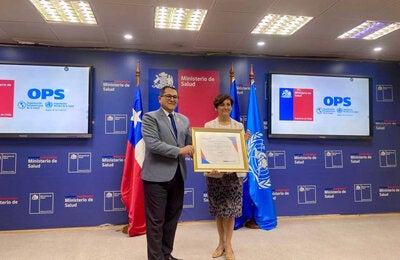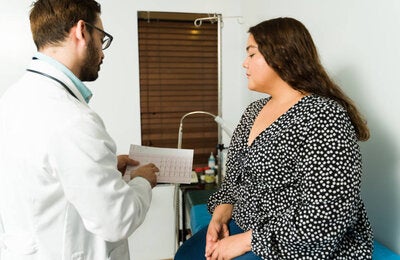On November 6 and 7, a training the trainers course on the mhGAP Intervention Guide was held at the Institute of Social Medicine of the University of the State of Rio de Janeiro (UERJ). It was sponsored by PAHO Brazil and organized by the Interdisciplinary Research Laboratory on Primary Health Care (LIPAPS/UERJ), with the support of Rio's Municipal Health Secretariat.
The course was coordinated by doctors Henk Parmentier, Jill Benson and Sandra Fortes from the World Organization of Family Doctors -WONCA- Working Party for Mental Health. There were a total of 35 participants, including 10 family doctors and nurse residency supervisors and 10 mental health professionals from the matrix support teams. Both groups are from the Municipal Health Secretariat. There were also psychiatrists, psychologists and family doctors of universities and other municipalities from the states of Rio de Janeiro, Maranhão, Ceara, Minas Gerais and Brasilia. PAHO was represented by its Mental Health Consultant, Daniel Elia.
The training began with the introductory part of the mhGAP modules. The development and implementation of psychosocial interventions in primary mental health care was an aspect that was considered especially relevant. Communication skills were also highlighted as important tools.
The following themes were selected for discussion: depression, alcohol use problems, medically unexplained symptoms, and anxiety disorders. Role playing was frequently used during the training and students were highly motivated to participate and discuss. Cultural aspects involving the presentation and treatment of these conditions were also reinforced. In the final training period, Dr. Parmentier encouraged participants to present key aspects of the subjects discussed and pointed out the most important issues to be considered in the training.
The slides are being translated into Portuguese. Members of the group were encouraged to use the mhGAP Intervention Guide in their routine trainings on primary mental health care.



